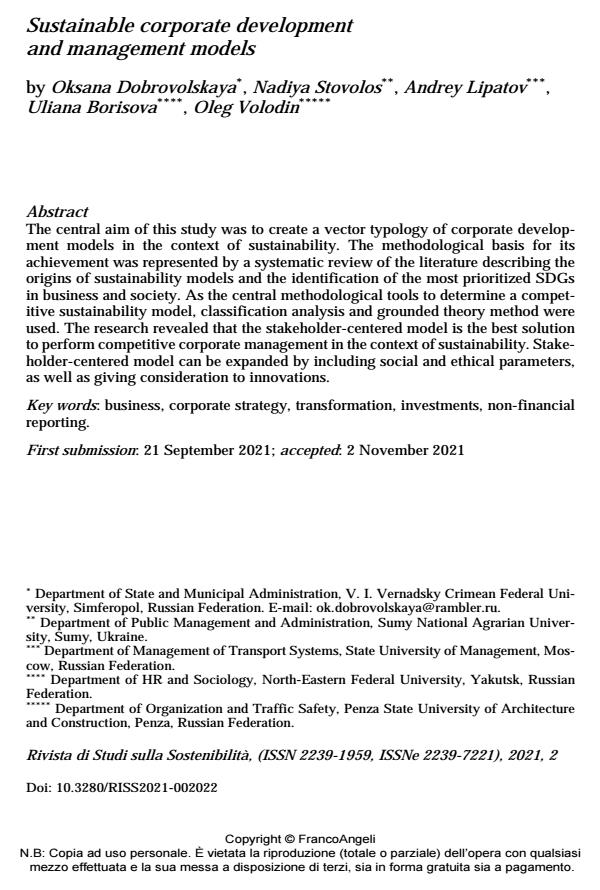Sustainable corporate development and management models
Journal title RIVISTA DI STUDI SULLA SOSTENIBILITA'
Author/s Oksana Dobrovolskaya, Nadiya Stovolos, Andrey Lipatov, Uliana Borisova, Oleg Volodin
Publishing Year 2022 Issue 2021/2
Language English Pages 17 P. 333-349 File size 211 KB
DOI 10.3280/RISS2021-002022
DOI is like a bar code for intellectual property: to have more infomation
click here
Below, you can see the article first page
If you want to buy this article in PDF format, you can do it, following the instructions to buy download credits

FrancoAngeli is member of Publishers International Linking Association, Inc (PILA), a not-for-profit association which run the CrossRef service enabling links to and from online scholarly content.
The central aim of this study was to create a vector typology of corporate development models in the context of sustainability. The methodological basis for its achievement was represented by a systematic review of the literature describing the origins of sustainability models and the identification of the most prioritized SDGs in business and society. As the central methodological tools to determine a competitive sustainability model, classification analysis and grounded theory method were used. The research revealed that the stakeholder-centered model is the best solution to perform competitive corporate management in the context of sustainability. Stakeholder-centered model can be expanded by including social and ethical parameters, as well as giving consideration to innovations.
Keywords: business, corporate strategy, transformation, investments, non-financial reporting.
Oksana Dobrovolskaya, Nadiya Stovolos, Andrey Lipatov, Uliana Borisova, Oleg Volodin, Sustainable corporate development and management models in "RIVISTA DI STUDI SULLA SOSTENIBILITA'" 2/2021, pp 333-349, DOI: 10.3280/RISS2021-002022